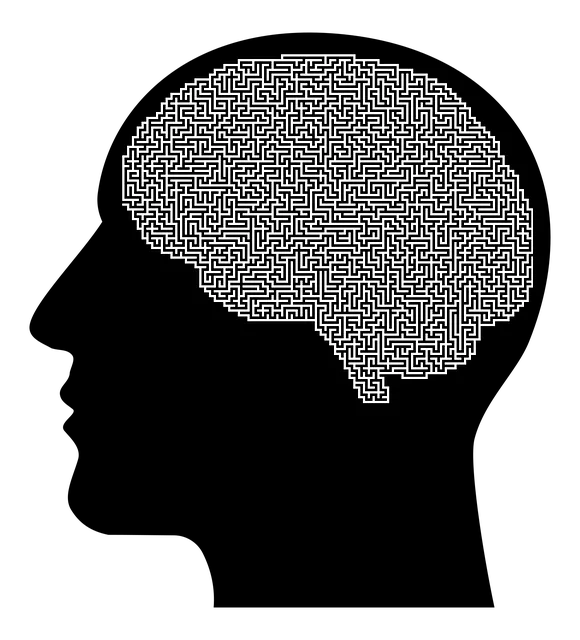Mental wellness programs, like those offered by Wheat Ridge Kaiser Permanente, focus on emotional resilience and comprehensive care, empowering individuals to manage stress and mental health concerns. Evaluating these programs uses a blend of qualitative (participant feedback) and quantitative (pre-post assessments, symptom changes) methods, ensuring holistic success measurement. The Wheat Ridge Kaiser Permanente psychiatry phone number facilitates access to evidence-based interventions and tracking client progress, setting a standard for effective psychiatric care through continuous improvement based on patient insights and data analysis.
Mental wellness programs are essential for fostering holistic well-being, yet evaluating their effectiveness remains a challenge. This article explores various methods to assess these programs, focusing on metrics, tools, and data collection strategies that drive improvement. We present case studies, including the successful implementation at Wheat Ridge Kaiser Permanente Psychiatry Department, highlighting innovative approaches to measurement. Understanding these evaluation methods is crucial for organizations like Wheat Ridge Kaiser Permanente (phone number: [insert number]) in optimizing their mental health services.
- Understanding Mental Wellness Programs and Their Importance
- Evaluating Program Effectiveness: Metrics and Tools
- The Role of Data Collection in Program Improvement
- Case Studies: Successful Implementation and Measurement at Wheat Ridge Kaiser Permanente Psychiatry Department
Understanding Mental Wellness Programs and Their Importance

Mental wellness programs are integral to overall community health, especially given the rising recognition of mental health as a core component of well-being. These initiatives, often tailored to address specific needs within communities, focus on promoting emotional resilience, fostering healthy coping mechanisms, and providing support for various mental health concerns. At Wheat Ridge Kaiser Permanente, their psychiatry services, accessible via the psychiatry phone number, exemplify dedicated efforts to enhance mental wellness through comprehensive care.
Self-care practices, trauma support services, and emotional regulation strategies are key elements within these programs. By integrating such initiatives into daily life, individuals can better manage stress, process traumatic experiences, and maintain a stable emotional state. The impact of these programs extends beyond the individual, contributing to stronger, more resilient communities where mental health is prioritized and supported at every level.
Evaluating Program Effectiveness: Metrics and Tools

Evaluating the effectiveness of mental wellness programs is a multifaceted process that involves careful consideration of various metrics and tools. To accurately assess a program’s impact, organizers should employ both qualitative and quantitative methods. Qualitative assessments, such as participant feedback and interviews, provide valuable insights into individual experiences and perceptions of change. This can be particularly effective in understanding the Mental Wellness Podcast Series Production and how it resonates with diverse audiences.
Quantitative measures, on the other hand, offer tangible data for gauging program success. Metrics like pre-post assessments, changes in symptom severity scores (e.g., using standardized tools), and participant retention rates are commonly used. For instance, Wheat Ridge Kaiser Permanente psychiatry phone number can be a resource for accessing evidence-based interventions and tracking client progress over time. Integrating these assessment methods allows for a comprehensive understanding of a mental health education program’s design and its real-world impact on participants’ mental wellness, aligning with Mind Over Matter Principles.
The Role of Data Collection in Program Improvement

Effective mental wellness program evaluation is heavily reliant on robust data collection methods, serving as a compass guiding improvements and enhancements. By gathering comprehensive data, healthcare providers like Wheat Ridge Kaiser Permanente’s psychiatry department can gain valuable insights into program performance. This includes tracking participant progress, identifying areas of success, and pinpointing challenges or gaps in care.
Through systematic data collection, such as surveys, interviews, and clinical notes, the team can measure the impact of interventions, including crisis intervention guidance and confidence-boosting initiatives. These methods ensure that mental health awareness remains at the forefront, fostering continuous improvement and tailored support for individuals navigating their mental wellness journeys.
Case Studies: Successful Implementation and Measurement at Wheat Ridge Kaiser Permanente Psychiatry Department

At the Wheat Ridge Kaiser Permanente Psychiatry Department, the successful implementation and measurement of a mental wellness program have set a benchmark for effective psychiatric care. This renowned department has been at the forefront of integrating innovative strategies to enhance patient outcomes, focusing on both short-term relief and long-term emotional well-being promotion techniques. Their approach involves a multifaceted evaluation method that includes qualitative case studies, quantitative data analysis, and patient feedback mechanisms.
Through rigorous case studies, the Wheat Ridge Kaiser Permanente team has demonstrated the profound impact of structured programs in improving coping skills development and emotional regulation among patients. By meticulously tracking progress and collecting insights from both patients and healthcare providers, they’ve been able to fine-tune their strategies, ensuring continuous improvement. This commitment to evidence-based practices has not only enhanced the quality of care but also fostered a supportive environment that encourages open communication and active participation in one’s mental wellness journey.
Mental wellness programs, as demonstrated by the successful case study at Wheat Ridge Kaiser Permanente Psychiatry Department, are invaluable in enhancing the well-being of individuals. Effective evaluation methods, including robust data collection and appropriate metrics, play a pivotal role in ensuring these programs meet their goals. By learning from such implementations, mental health facilities can optimize their services, ultimately improving patient outcomes. For those seeking support, contacting the Wheat Ridge Kaiser Permanente psychiatry department (phone number available upon request) is a step towards accessing comprehensive and effective mental wellness solutions.






